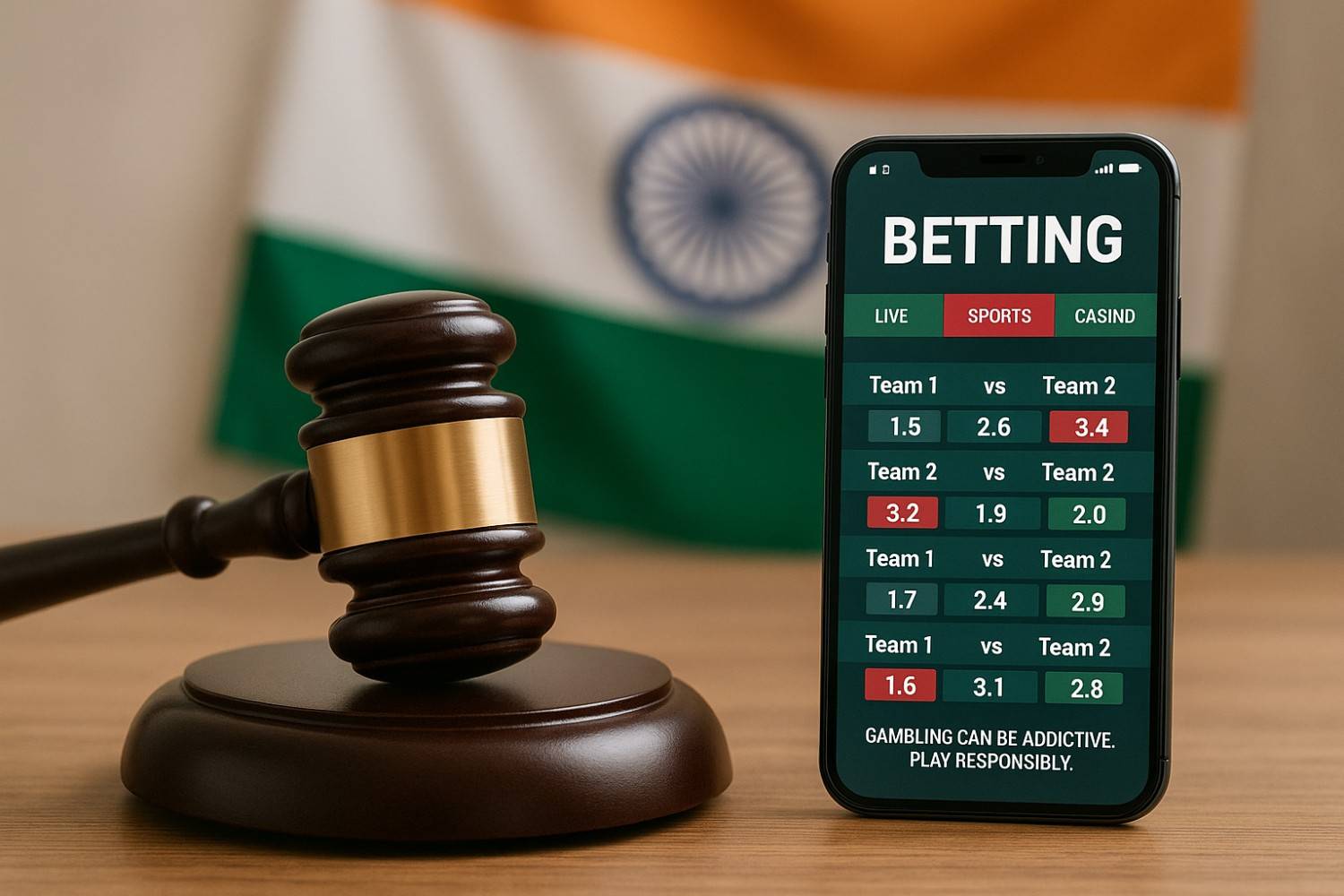The online betting industry in India has exploded in recent years, attracting millions of users with easy access to smartphones, affordable data, and a growing fascination with sports and gaming. However, along with this surge comes confusion about one crucial question: Is online betting actually legal in India?
The short answer is: it depends. While there isn’t a uniform national law that clearly says online betting is legal or illegal across the country, the legality varies depending on the type of game and the laws of the particular state you live in. In this article, we’ll break down the complex legal framework governing online betting in India, explain how different states treat it, and guide you on how to engage in it safely and responsibly if you choose to.
Understanding Indian Gambling Laws: National vs. State Regulation
To understand online betting legality, you first need to understand how gambling laws work in India. Gambling is primarily regulated under the Public Gambling Act of 1867, an old British-era law that makes operating or visiting a gambling house illegal. However, this law doesn’t explicitly mention or account for online betting since it was created long before the digital era.
Importantly, the Indian Constitution gives states the power to create their own laws on gambling. This means that each state can either follow the 1867 law or enact its own regulations. As a result, some states have banned all forms of betting, including online, while others have chosen to regulate and even license certain activities.
So, Is Online Betting Legal in India?
There is no central law in India that outright bans online betting. However, since gambling is a state subject, legality depends on where you reside. In states like Sikkim, Goa, and Nagaland, online betting and gambling are regulated and allowed under state-specific licenses. Meanwhile, states like Telangana and Andhra Pradesh have imposed strict bans on online gambling and betting activities.
In many other states, there is no clear regulation, leaving online betting in a legal grey area. In these cases, the focus often shifts to whether a game is considered a game of skill or a game of chance, which brings us to another important legal distinction.
Game of Skill vs. Game of Chance
Indian law differentiates between games of skill and games of chance. Betting on games of pure chance is generally prohibited, while betting on games of skill is often allowed.
For example, games like rummy and fantasy sports have been legally recognized as games of skill by Indian courts. The Supreme Court and various high courts have upheld that fantasy sports platforms like Dream11 require substantial skill, strategy, and statistical knowledge.
This distinction has become a legal loophole that some online betting platforms use to operate in India. However, this doesn’t apply to all forms of betting, especially sports betting, which is still considered illegal in most jurisdictions.
Is Online Betting Safe in India?
Even if you live in a state where online betting isn’t explicitly illegal, that doesn’t mean it’s entirely safe. Many Indian users access offshore betting websites, which are licensed in countries like Curacao, Malta, or Gibraltar. These websites accept Indian users and offer betting in Indian rupees, but they operate outside Indian jurisdiction.
This can create problems. Since these sites are not governed by Indian regulators, users have limited legal protection in case of fraud or disputes. That said, some of these international platforms have strong reputations for fairness and security. Still, it’s important to research carefully before depositing money.
Popular Legal Betting Platforms Accepting Indian Users
Despite the legal grey area, several reputable international platforms accept Indian users and allow deposits in Indian currency. Examples include Betway, Parimatch, 1xBet, and 10Cric. These platforms operate under international gaming licenses and often promote responsible gambling.
Before you sign up for any site, check for:
- A valid license from a recognized regulatory authority
- SSL encryption and secure payment gateways
- Transparent terms and customer support
Choosing a platform with a good track record and positive user reviews can go a long way in ensuring a safe experience.
States Where Online Betting is Legal or Regulated
Here’s a quick look at how different states treat online betting:
- Sikkim: The first Indian state to legalize online gaming. Offers licenses for sports betting and casinos under strict conditions.
- Goa: Allows casino gambling in licensed venues; however, online betting is still limited.
- Nagaland: Legalized online games of skill and provides licenses to operators.
- Telangana & Andhra Pradesh: Both states have enacted laws banning all forms of online betting and gambling.
- Maharashtra, Delhi, Karnataka, etc.: No specific laws regulating online betting, making them grey areas legally.
Always check the latest updates from your state’s legal or gaming authority before placing a bet.
Is It Legal to Bet Using INR or UPI?
Indian users often wonder if using INR, UPI, or online wallets for betting is considered legal. The answer isn’t straightforward. Most Indian banks restrict transactions to betting websites, especially those flagged as gambling entities. That’s why many betting platforms use payment intermediaries or ask users to deposit via e-wallets or cryptocurrencies.
Some platforms offer workarounds like Paytm, PhonePe, Google Pay, or even Bitcoin to facilitate deposits and withdrawals. However, such methods still raise concerns under FEMA (Foreign Exchange Management Act) if foreign currency is involved.
Again, this is a grey area, and users should proceed with caution.
Penalties for Illegal Online Betting
While using offshore betting platforms is not outright banned in most states, participating in online betting from a state that prohibits it can lead to legal consequences. For instance, states like Telangana have imposed fines and even imprisonment for users caught gambling online.
Penalties may include:
- Fines up to INR 5,000 or more
- Short-term imprisonment (usually up to a year)
- Confiscation of devices or accounts used for gambling
Real enforcement, however, varies. In many states, the law remains unenforced unless large-scale activity or fraud is involved. Still, it’s wise to stay within legal boundaries.
Tips for Legal and Safe Betting in India
If you do decide to place bets online, here are some tips to ensure you stay on the safer side:
- Check your state laws: Know whether your local laws allow or prohibit online betting.
- Use reputed platforms: Stick to international websites with established reputations.
- Verify licenses: Always check if the platform is licensed and regulated.
- Avoid suspicious apps: Never download unverified apps or software.
- Use secure payment methods: Prefer e-wallets or platforms that encrypt financial data.
- Set limits: Use self-exclusion tools and set spending limits to avoid problem gambling.
The Legal Grey Areas & What Lies Ahead
India’s gambling laws are overdue for modernization. With the booming popularity of online gaming and sports betting, experts believe that regulation could provide more safety, better revenue, and control over illegal operations.
The central government has occasionally hinted at creating a unified framework for online gaming. Committees have been formed to evaluate the pros and cons of regulating this space. There are also discussions around treating online betting as a taxable industry that can generate revenue for state and central governments.
For now, the grey area continues, but the direction seems to be moving toward legalization and regulation, especially with the rise of fantasy sports, which has already received legal backing in several states.
Conclusion: Should You Bet Online in India?
Online betting in India walks a thin line between legality and ambiguity. While there’s no central law banning it entirely, state laws and interpretations of “skill vs. chance” make the situation complex.
If you live in a state that allows online betting or doesn’t regulate it strictly, you may be able to bet online through international platforms that are responsibly operated. However, caution is advised. Always verify the legitimacy of the platform, understand the laws in your state, and gamble responsibly.
This article is for informational purposes only and does not constitute legal advice. For specific legal concerns, it’s best to consult with a qualified legal professional or check with your state authorities.
FAQ’S
1. Is online betting in India legal?
Online betting in India exists in a legal grey area. While there is no national law banning it outright, gambling is a state subject, and some states like Sikkim and Goa allow it under regulation. Others, like Telangana and Andhra Pradesh, have banned it completely. So, legality depends on your location and the platform you use.
2. Which states allow betting in India?
States like Sikkim, Goa, and Nagaland allow certain forms of betting, including online gambling, under specific state laws and licensing. These states regulate betting activities, unlike others such as Telangana and Andhra Pradesh, which have banned it entirely. It’s essential to check your state’s regulations before placing bets.
3. Is match betting legal in India?
Match betting is not explicitly legal in most Indian states. It is generally considered a game of chance, which is prohibited under the Public Gambling Act, unless the state has regulations in place. Some offshore platforms offer betting services to Indians, but using them may violate local laws depending on your state.
4. Is 1xBet legal in India?
1xBet is an offshore betting platform licensed internationally but not regulated under Indian law. While it accepts Indian users, its legality depends on your state’s stance on online betting. Some states may prohibit its use entirely, so it’s important to verify local laws before using platforms like 1xBet.
5. Is Dream11 legal in India?
Yes, Dream11 is considered legal in most Indian states because it’s classified as a game of skill, not chance. The Supreme Court and multiple High Courts have upheld this classification. However, Dream11 is banned in a few states like Assam and Odisha due to local gambling laws.
6. What is the penalty for betting in India?
Penalties for illegal betting in India vary by state. Under the Public Gambling Act, you may face a fine of ₹200 or imprisonment for up to three months. In stricter states like Telangana, penalties can be more severe, including higher fines and longer jail terms. Always check your state laws before betting.
7. How much tax is on online betting in India?
Winnings from online betting in India are taxed at a flat rate of 30%, excluding cess and surcharge, under Section 115BB of the Income Tax Act. The tax applies regardless of the amount won and must be reported in your annual tax filing. Some platforms may deduct TDS before paying out.









